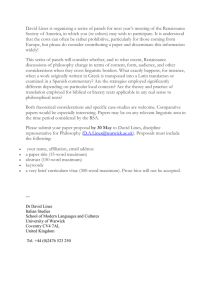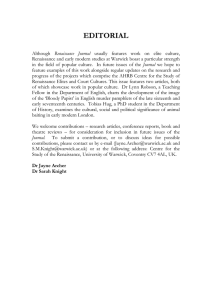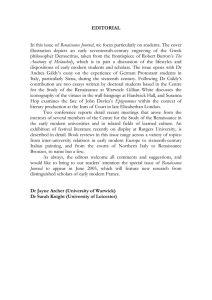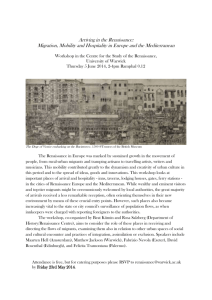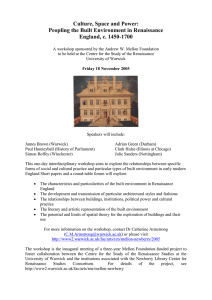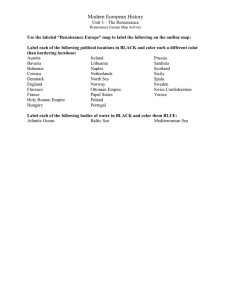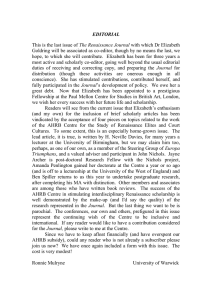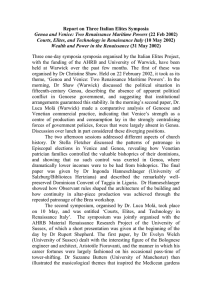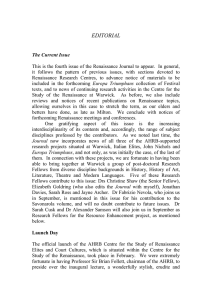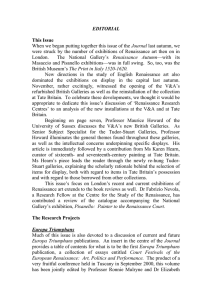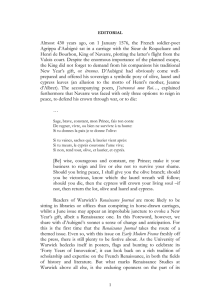DR JAYNE ARCHER AND DR SARAH KNIGHT Journal
advertisement
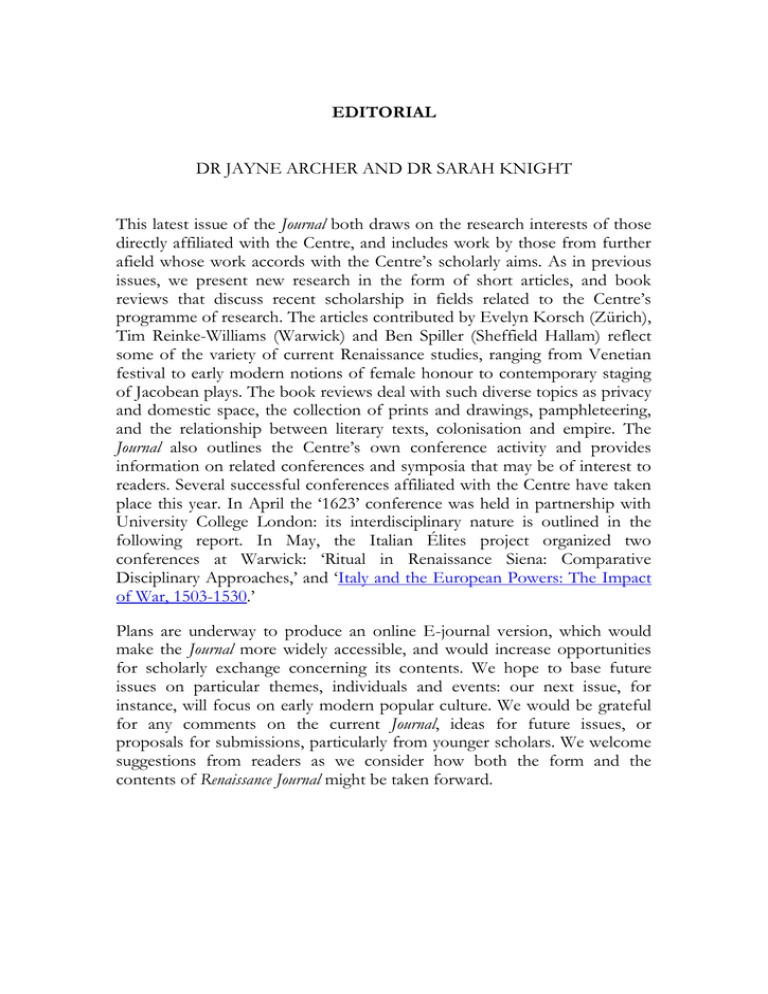
EDITORIAL DR JAYNE ARCHER AND DR SARAH KNIGHT This latest issue of the Journal both draws on the research interests of those directly affiliated with the Centre, and includes work by those from further afield whose work accords with the Centre’s scholarly aims. As in previous issues, we present new research in the form of short articles, and book reviews that discuss recent scholarship in fields related to the Centre’s programme of research. The articles contributed by Evelyn Korsch (Zürich), Tim Reinke-Williams (Warwick) and Ben Spiller (Sheffield Hallam) reflect some of the variety of current Renaissance studies, ranging from Venetian festival to early modern notions of female honour to contemporary staging of Jacobean plays. The book reviews deal with such diverse topics as privacy and domestic space, the collection of prints and drawings, pamphleteering, and the relationship between literary texts, colonisation and empire. The Journal also outlines the Centre’s own conference activity and provides information on related conferences and symposia that may be of interest to readers. Several successful conferences affiliated with the Centre have taken place this year. In April the ‘1623’ conference was held in partnership with University College London: its interdisciplinary nature is outlined in the following report. In May, the Italian Élites project organized two conferences at Warwick: ‘Ritual in Renaissance Siena: Comparative Disciplinary Approaches,’ and ‘Italy and the European Powers: The Impact of War, 1503-1530.’ Plans are underway to produce an online E-journal version, which would make the Journal more widely accessible, and would increase opportunities for scholarly exchange concerning its contents. We hope to base future issues on particular themes, individuals and events: our next issue, for instance, will focus on early modern popular culture. We would be grateful for any comments on the current Journal, ideas for future issues, or proposals for submissions, particularly from younger scholars. We welcome suggestions from readers as we consider how both the form and the contents of Renaissance Journal might be taken forward.
